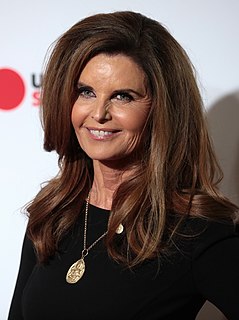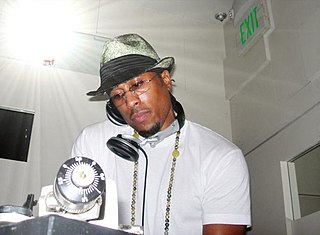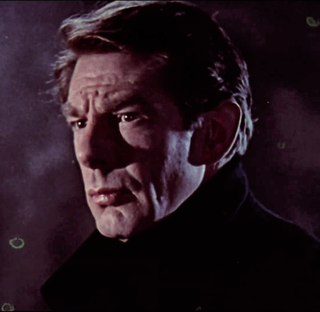A Quote by Susan Sarandon
Now, as I move through my fifties, I can be professional and domestic, creative and intellectual, patient and urgent. I have learned that we should never settle for someone else's definition of who we can be. Growing to this age, I realize, is kind of like feeling your voice deepen. It's still your voice, but it has more substance, and it sounds like it knows its own origins.
Related Quotes
We're always being told 'find your voice.' When I was younger, I never really knew what this meant. I used to worry a lot about voice, wondering if I had my own. But now I realize that the only way to find your voice is to use it. It's hardwired, built into you. Talk about the things you love. Your voice will follow.
Write like you write, like you can't help but write, and your voice will become yours and yours alone. It'll take time but it'll happen as long as you let it. Own your voice, for your voice is your own. Once you know where your voice lives, you no longer have to worry so much about being derivative.
I've never been good at getting on people's nerves, and from the little quotes I read, it's like, 'You're not doing enough in your life if you're not making someone angry.' And I'm like, 'Man. But my life - I seem to help people get somewhere, so am I not? Should I be more aggressive?' That's the way my inside voice sounds.
When you recognize that there is a voice in your head that pretends to be you and never stops speaking, you are awakening out of your unconscious identification with the stream of thinking. When you notice that voice, you realize that who you are is not the voice - the thinker - but the one who is aware of it.
There's this pet phrase about writing that is bandied around particularly in workshops about "finding your own voice as a poet", which I suppose means that you come out from under the direct influence of other poets and have perhaps found a way to combine those influences so that it appears to be your own voice. But I think you could also put it a different way. You, quote, find your voice, unquote, when you are able to invent this one character who resembles you, obviously, and probably is more like you than anyone else on earth, but is not the equivalent to you.
The voice is like a man, like ourselves: we all feel melancholic about what we have lost, the things we could do when we were young. But having the possibility to still perform is wonderful. The voice loses elasticity as you age, but on the other hand, maybe you are more mature as an interpreter, maybe your approach to singing deepens.
I don't like my voice that much. I think I'm a much better actress than singer. Singing is like going to a party at someone else's house. Acting is like having the party at your own house. When you go to someone else's house for a party, it's not your responsibility at all, but when you have the party at your own house, there's a lot of responsibility. Everyone has to have a good time. So for me, acting is deeper.
Something like Deckard Cain is great; it doesn't ruin your voice. But games that involve violence or battle or mutating and stuff like that really does take a toll on your voice. And I've even had to start to go to a voice guru kind of guy to do exercises to try to save and get back some of what I lost.



































